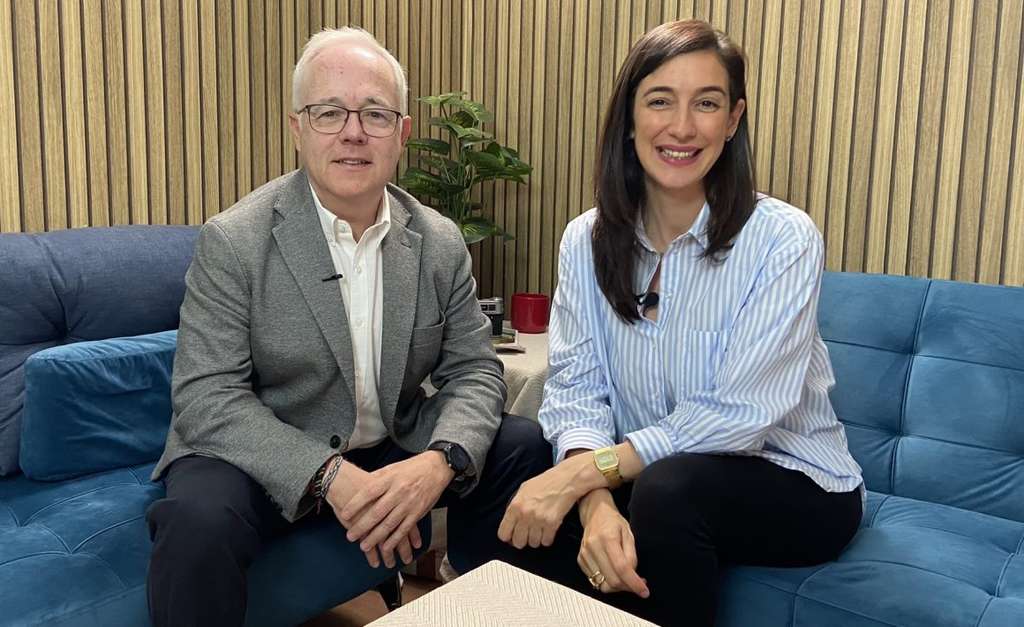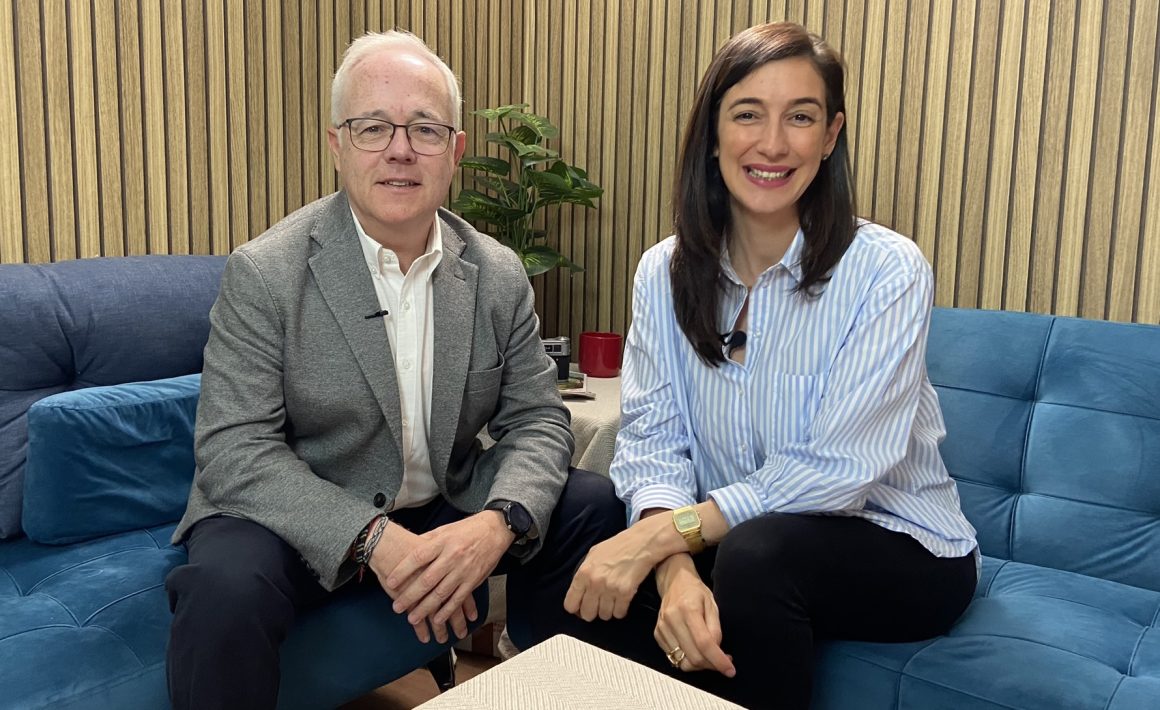Can we do AI, Guest Experience and Human Touch? with César Pérez of Vincci Hotels

Recently, I had the opportunity to sit down with César Pérez, Director of Quality and Sustainability at Vincci Hotels, for another episode of the Shiji Insights podcast. Our conversation touched on several critical themes in hospitality today—hyper-personalization, employee satisfaction, sustainability, and the role of technology. It made me reflect on how the industry is evolving and, importantly, what remains unchanged: the significance of the human connection.
Key takeaways
Hyper-Personalization is essential: Treat every guest uniquely, with services tailored to meet individual needs and preferences.
Employee satisfaction drives guest satisfaction: Prioritise creating a supportive and fulfilling work environment, recognising this is key to outstanding service.
Sustainability and quality go hand-in-hand: Vincci Hotels takes sustainability seriously, integrating it into its overall quality strategy.
Technology should enhance, not replace, human interaction: Simplify tasks, freeing employees to focus on what truly matters—building relationships with guests.
Growth with purpose: Vincci takes a thoughtful and measured approach to expansion, maintaining high standards and values.
AI and hyper-personalization
AI plays a significant role in enhancing guest experiences, particularly through hyper-personalization. Hyper-personalization refers to the ability to tailor every aspect of the guest’s stay to their specific preferences, and Vincci is deeply invested in it.
Hyper-personalization is becoming more critical than ever as customer categories continue to blur. Whether a guest stays for business, leisure, or a mix of both, Vincci aims to provide a custom-made, seamless experience. This requires advanced tools and technology, from AI-driven semantic analysis to robust CRM systems that help track guest preferences.
AI is used to analyse guest feedback in real-time, allowing the team to identify areas for improvement and opportunities to enhance the guest experience. By understanding what guests value—whether it’s a quiet room, specific amenities, or personalised services—Vincci Hotels can adapt their offerings accordingly. AI also helps manage the vast amount of data collected from various sources, ensuring that the insights generated are actionable and meaningful.
However, while AI and technology provide the backbone for these efforts, the human element must always be present. Technology cannot replicate the ability to anticipate a guest’s needs, offer a warm greeting, or go above and beyond in an authentic way. The key is to free employees from administrative tasks
so they can focus on what they do best: creating memorable guest experiences.
Embracing technology without losing the human touch
Technology should enhance rather than replace the human aspect of hospitality. Personalized attention, care, and detail still require a human touch,
he said.
The heart of hospitality lies in the interactions between guests and staff. While technology can streamline processes and provide valuable insights, it should never diminish the warmth and genuine connection that define a great hotel experience.
One area where technology has made a significant impact is understanding customer needs. Vincci Hotels uses AI and semantic analysis to personalise the guest experience more effectively. Their reputation management tool gathers detailed insights into what guests value most. For example, if a guest prioritises “tranquillity,” semantic analysis can identify specific issues—like slamming doors in the hallway—that may disrupt that sense of calm.
We have to make a tailored suit for each customer—hyper-personalization requires tools, analysis, and technology. César Pérez, Vincci Hotels
Simplifying technology for guests is crucial. Vincci Hotels encountered challenges with overly complex room automation systems, where guests struggled with basic tasks like turning off the lights. This highlights the importance of keeping technology user-friendly in hospitality.


The changing nature of customer needs
Over the past few years, there has been a noticeable shift in how people perceive travel and leisure. The pandemic, in particular, altered how people view vacations—what used to be a luxury is now seen by many as a necessity. He mentioned that this shift in mentality has brought both challenges and opportunities for hoteliers. We’ll have to redo Maslow’s pyramid and fit it somewhere,
he joked, referring to how leisure has moved up in importance for many people.
It’s no longer enough to offer a place to stay; hotels must create meaningful and personalised experiences that resonate with each guest’s unique preferences. This is where technology, data, and the human touch come together. Vincci Hotels personalises the guest experience by leveraging AI and semantic analysis while ensuring every interaction feels genuine and thoughtful.
The power of employee satisfaction
The emphasis on employee satisfaction is a crucial aspect often overlooked when discussing hospitality. The industry must ensure that working in a hotel is rewarding—not just financially but also personally fulfilling. The hospitality industry can be challenging with its long hours and often demanding workload. It is up to hoteliers to create an environment where employees feel valued, respected, and motivated. This, in turn, translates into better service for guests. In the end, they are customers too, internal customers,
he explained, stressing that employee satisfaction should be just as nuanced and personalised as the approach to guest satisfaction.
Employees who struggle—whether with issues at home or a lack of support at work—will likely reflect these challenges in their interactions with guests. Therefore, Vincci Hotels is committed to creating an environment that provides professional growth opportunities and supports its staff more holistically.
A story of growth and adaptability
Vincci Hotels was founded about 23 years ago by the Calero family, who were no strangers to the hospitality sector. Their initial goal was straightforward: to create a brand focused on providing high-quality service in the 4—to 5-star segment. The company caters to guests, from those seeking a luxury urban stay to those looking for a vacation retreat. Maintaining this focus has allowed them to provide consistent quality across all their properties.
Vincci has weathered many crises, from the economic downturn in 2008 to the challenges of COVID-19. Each crisis presented difficulties but also opportunities for growth and learning. The company used these challenges to strengthen their dedication to quality and sustainability.
Sustainability
Measuring sustainability is critical. Any initiative requires prior measurement,
he pointed out, highlighting that the only way to ensure progress is to have the right tools and data to measure impact. Sustainability is closely tied to quality improvement, with the same attention and rigour applied to both areas. Vincci is committed to continuous improvement in reducing energy consumption, managing waste, and creating sustainable guest experiences.
Vincci focuses on gathering guest feedback regarding sustainability efforts, such as room features and energy-saving devices. This guest involvement enhances the stay experience and aligns with the growing demand for environmentally conscious hospitality.
The future of Vincci hotels
Beyond ongoing geographical expansion, Vincci also focuses on enhancing its technological capabilities and sustainability practices. Actively working on incorporating more advanced automation and AI technologies across its operations, all with the aim of improving guest satisfaction and streamlining internal processes. A vision that aligns perfectly with Vincci’s commitment to thoughtful and well-paced growth.
The industry constantly evolves, and there is always something new to learn. Staying adaptable and open to change makes the hospitality industry rewarding. You don’t have a minute of rest,
César said, referring to the dynamic nature of the sector. But this variety—the ability to be involved in everything from guest service to operational improvements—makes working in hospitality so exciting.
Conclusion
The hospitality sector is continually changing, influenced by technological progress and changing customer demands. But at its core, it’s about people—both guests and employees. Vincci Hotels’ approach to balancing these elements is a testament to its commitment to quality, sustainability, and genuine hospitality.
The future of hospitality is about embracing technology without losing the human touch. It’s about creating a tailored experience for each guest while ensuring that employees feel valued and supported. It’s all about expanding with consideration, remaining loyal to the brand, and creating a positive influence on guests and the environment.
Successful hotels understand and appreciate the power of the human connection. They use technology to enhance that connection, not replace it, and they will continue to put guests and employees at the heart of everything they do.
Watch the full episode: (In Spanish)

About Shiji Group
Shiji is a multi-national technology company that provides software solutions and services for enterprise companies in the hospitality, food service, retail and entertainment industries, ranging from hospitality technology platform, hotel property management solutions, food and beverage and retail systems, payment gateways, data management, online distribution and more. Founded in 1998 as a network solutions provider for hotels, Shiji Group today comprises over 5,000 employees in 80+ subsidiaries and brands in over 31 countries, serving more than 91,000 hotels, 200,000 restaurants and 600,000 retail outlets. For more information, visit www.shijigroup.com.
View source

Recent Comments